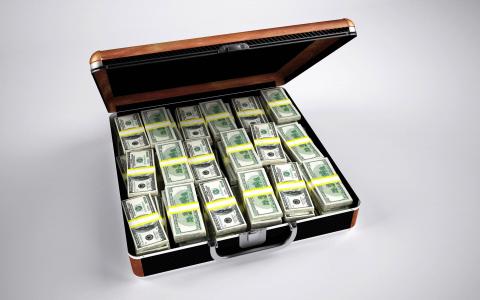
(Bloomberg) - Investors are eschewing almost everything except cash in this selloff.
The Bloomberg Dollar Spot Index has trumped all other assets this month, notching a 0.6% advance at a time when stocks and bonds are tumbling. Investors have poured cash into an exchange-traded fund tracking Treasury bills for five weeks, clocking up the biggest inflows since 2020.
It all shows that investors are focused on one thing right now: capital preservation. Slowing economic growth, persistent inflation and more Covid lockdowns in China have combined to make a toxic investing landscape. Even commodities, a favorite inflation play, succumbed to the global selloff on Monday.
“Any time you see this type of market volatility, investors flock to the safety of cash, and you’re absolutely seeing that dynamic now,” said Dan Suzuki, deputy chief investment officer at Richard Bernstein Advisors.
“Instead of a shift out of stocks and into a mix of bonds and cash, the moves into cash are being funded by the sales of both stocks and bonds. That’s resulted in a huge spike in the demand for cash,” he added.
It’s a theme being repeated in the halls of the biggest investment houses. As BlackRock Inc.’s Chief Investment Officer for Global Fixed Income Rick Rieder put it last week, “we’re holding our cash with both hands.” His firm has been adding more quality trades, reducing junk bonds in favor of investment-grade credit and top-rated asset-backed securities.
Paul Tudor Jones, CEO and chief investment officer of Tudor Investment Corp, has said he’s not sure if this will be a time where you are actually trying to make money.
“You can’t think of a worse environment than where we are right now for financial assets,” he told CNBC this month. “Clearly you don’t want to own bonds and stocks.”
Paul Tudor Jones Tells CNBC Capital Preservation Most Important
While stock and bond markets have been sliding all year, the moves have become especially sharp since the Federal Reserve’s 50-basis point rate rise last week. The hike stoked fear that the U.S. economy is on the brink of falling into stagflation -- a mix of rising costs, falling employment and slow growth.
Investors flocked to the $17 billion SPDR Bloomberg Barclays 1-3 Month T-Bill ETF (ticker BIL) adding $3.3 billion since the start of April, according to data complied by Bloomberg. The $18 billion iShares Short Treasury Bond ETF (SHV) has seen a $2.2 billion cash injection in the past seven weeks.
By Denitsa Tsekova and Cecile Gutscher



